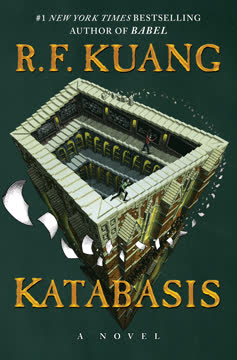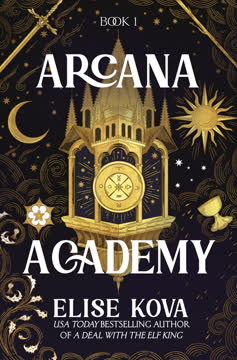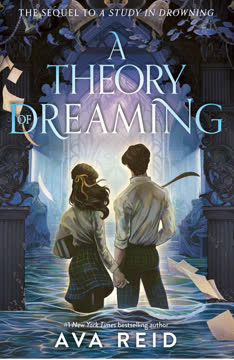Plot Summary
Descent for a Lost Soul
Alice Law, a driven Cambridge postgraduate in analytic magick, embarks on a desperate quest to rescue her advisor, Professor Jacob Grimes, whose gruesome death in a magical accident she blames on herself. Without Grimes, her academic future is doomed, so she resolves to descend into the Eight Courts of Hell to bargain for his soul. Peter Murdoch, her brilliant but infuriating rival, insists on joining her, revealing he too needs Grimes for his own reasons. Together, they perform a dangerous ritual, sacrificing half their lifespans to cross into the underworld. The journey is fraught with guilt, ambition, and the unspoken wounds of their complicated relationship, setting the stage for a metaphysical odyssey through the afterlife's shifting, perilous landscape.
The Viewing Pavilion's Lament
Upon arrival in Hell, Alice and Peter traverse the gray dunes and encounter the Viewing Pavilion—a liminal bridge where the dead can glimpse the living and vice versa. Here, they witness their colleagues above, piecing together their disappearance, and are reminded of the impossibility of simply returning. The Pavilion is a place of longing and regret, where ghosts haunt the living not out of malice, but a desperate desire to be remembered and included. The journey through the Pavilion underscores the pain of separation and the irreversibility of their choice, as well as the haunting presence of unfinished business and the ache of being left behind.
Undergraduates and Unfinished Business
In the Fields of Asphodel, Alice and Peter search for Grimes among the recently dead, but instead encounter the Shades of four undergraduates who perished decades ago in a magical accident under Grimes's supervision. These tragic figures, locked in the moment of their deaths, are paralyzed by fear of reincarnation and the loss of their intellectual identities. Their presence forces Alice and Peter to confront the moral ambiguities of academic ambition, the terror of mediocrity, and the cost of clinging to past glories. The undergraduates' refusal to move on mirrors the living's own paralysis, and their questions about the value of life and knowledge echo throughout the journey.
The Wall of Bones
To progress deeper into Hell, Alice and Peter must scale a massive wall constructed from the bones of the dead—a physical and psychological trial. The climb exposes their vulnerabilities: Peter's fear of heights and Alice's exhaustion and self-doubt. Their mutual dependence is laid bare as they help each other through panic and pain, but the wall also symbolizes the barriers between them—pride, rivalry, and unspoken history. At the summit, they glimpse the shifting, surreal topography of Hell, a landscape that resists mapping and certainty, foreshadowing the non-Euclidean, paradoxical nature of the trials ahead.
Rivalry and Regret
As they camp beneath the wall, Alice and Peter's simmering rivalry erupts. They trade barbs about fellowships, past slights, and the elusive approval of Grimes. Their conversation reveals the toxic dynamics of academic ambition, the hunger for validation, and the wounds inflicted by favoritism and exclusion. Both are haunted by what they've lost and what they've sacrificed to reach this point. Yet, in their shared vulnerability, a fragile truce forms, hinting at the possibility of reconciliation and mutual understanding, even as the path ahead grows darker and more uncertain.
The Library of Pride
The First Court of Hell manifests as a grand, infinite library where souls are condemned to define "the good" through endless study and debate. Here, Alice and Peter meet the Shade of George Edward Moore, who guides them through the petty sins of pride and academic arrogance. The library is a place of frustration, where logic and reason become traps, and the pursuit of knowledge devolves into self-justification and paralysis. Alice's realization that Grimes is not here—his sins are of a different order—propels them onward, but not before they are reminded of the dangers of intellectual hubris and the futility of seeking certainty in an ambiguous world.
The River Lethe's Temptation
At the banks of the Lethe, the river of forgetfulness, Alice is nearly seduced by the promise of oblivion. The river's waters offer release from pain, memory, and self, and the guardian Meng Po beckons her to drink and be at peace. Peter's intervention—anchoring her with reminders of her identity—saves her from dissolution. The episode crystallizes the central tension between the desire to forget and the necessity of memory, between the comfort of erasure and the courage to endure. The Lethe is both a mercy and a threat, a symbol of the price of moving on and the cost of holding on.
The Court of Desire
The Second Court, Desire, appears as a student center filled with Shades trapped in compulsive, self-indulgent loops—addicts of pleasure, sex, food, and validation. Alice and Peter are repulsed and unsettled, forced to confront their own desires and the ways in which academia demands the denial of bodily needs. The court is a mirror of their own asceticism and the shame attached to wanting. Their encounter with the court's temptations and the bone-things that attack them underscores the dangers of both excess and repression, and the violence that can erupt when desire is denied or left unchecked.
The Bone-Things' Pursuit
As they journey onward, Alice and Peter are hunted by bone-things—magically animated skeletal creatures, the creations of the Kripkes, legendary magicians who have become monstrous in their quest for power. The bone-things are immune to ordinary magick, forcing Alice and Peter to rely on wit, courage, and the dangerous waters of the Lethe to survive. The encounter reveals the presence of other, more dangerous sojourners in Hell, and the lengths to which magicians will go to achieve their ends. The threat of the Kripkes looms, a warning of what happens when the pursuit of knowledge becomes all-consuming.
Confessions and Consequences
In the aftermath of violence, Alice and Peter confess their secrets: the tattoo Grimes inscribed on Alice, granting her perfect memory at a terrible cost; Peter's complicity in Grimes's death and his own chronic illness. Their confessions are acts of vulnerability and self-reckoning, exposing the wounds inflicted by ambition, abuse, and the relentless demands of academia. The exchange is both cathartic and destabilizing, as they grapple with the impossibility of absolution and the necessity of moving forward. The chapter is a meditation on the price of knowledge, the burden of memory, and the hope of redemption.
The Weaver Girl's Dilemma
At the border of Greed and Wrath, Alice and Peter encounter the Weaver Girl, a deity who offers them a shortcut in exchange for a test of loyalty—a magical prisoner's dilemma. Each must choose whether to go on together or alone, with the risk of betrayal and oblivion. The test exposes the fractures in their relationship, as suspicion and fear override trust. Alice, paralyzed by doubt and the memory of Peter's notes on exchange, chooses self-preservation, dooming Peter to the Weaver Girl's wrath. The episode is a devastating exploration of trust, betrayal, and the difficulty of choosing vulnerability over self-defense.
The Escher Trap
Separated and desperate, Alice and Peter are ensnared by the Kripkes in an Escher-inspired trap—a pit of endless, looping stairs from which there is no escape. The trap is a physical manifestation of logical paradox, a place where reason fails and hope dwindles. As they languish, they confess the full truth of their actions: both are responsible for Grimes's death, both are haunted by guilt and the impossibility of forgiveness. The only way out is through sacrifice, and Peter, using the Hangman's Paradox, engineers Alice's escape at the cost of his own life. The chapter is a meditation on the limits of logic, the necessity of grace, and the pain of letting go.
The Price of Memory
Alone, Alice wanders the wastelands of Lower Hell, stripped of her magical tattoo and the burden of perfect memory. She is numb, emptied of purpose, and haunted by the loss of Peter. The Rebel Citadel, a haven for those who refuse to move on, offers only stasis and despair. Alice is forced to confront the futility of waiting for meaning, the agony of time without change, and the necessity of choosing life in the face of emptiness. Her journey becomes a search for a reason to go on, a struggle to find hope in a world that offers none.
The Rebel Citadel
Within the Rebel Citadel, Alice encounters Gertrude and the community of souls who have chosen to resist reincarnation, building a city of defiance and waiting for the end of the world. The citadel is a place of beauty and emptiness, a monument to the refusal to change. Alice is tempted by the promise of rest, but the stifling stillness and the agony of unending time drive her to flee. The citadel is a warning against the allure of false paradises and the danger of mistaking stasis for peace.
The Kripkes' Domain
Hunted by the Kripkes and their bone-things, Alice is forced to fight for her life. She uses her wits, magick, and the lessons of paradox to outmaneuver her pursuers, culminating in a brutal confrontation that leaves her bloodied but victorious. The battle is a test of will, ingenuity, and the refusal to be a victim. In defeating the Kripkes, Alice reclaims agency and the right to shape her own fate, but the cost is high—violence, loss, and the knowledge that survival is never guaranteed.
The True Contradiction
Elspeth, the Shade who once saved Alice, returns and gifts her the Dialetheia—a True Contradiction, the key to bargaining with the Lord of Hell. The gift is an act of inexplicable grace, a reminder that not all debts must be repaid and that kindness can exist even in the darkest places. With the Dialetheia in hand, Alice is finally able to approach the throne of Yama, armed not only with power but with the hard-won wisdom of her journey. The chapter is a celebration of generosity, the hope of transformation, and the courage to accept help.
The Throne of Yama
At the throne of King Yama, Alice presents the Dialetheia and bargains for her and Peter's return to life. She confronts Grimes one last time, refusing his offer of eternal research and choosing instead the messy, finite world of the living. The exchange is both literal and symbolic—a rejection of the false promises of immortality and the embrace of imperfection, vulnerability, and love. With Yama's blessing, Alice and Peter ascend the staircase back to the world above, transformed by their ordeal and ready to begin anew.
Return to the Living
Alice and Peter emerge from Hell into the starlit gardens of Cambridge, hand in hand, forever changed. The world is brighter, more vivid, and full of possibility. The wounds of the past remain, but they are tempered by forgiveness, understanding, and the hope of a future together. The journey through Hell has stripped them of illusions, pride, and the need for certainty, leaving only the essential: the will to live, to love, and to make meaning in a world that is always incomplete. Their story ends not with answers, but with the promise of new beginnings.
Characters
Alice Law
Alice is a postgraduate student at Cambridge, specializing in analytic magick. Driven by guilt over her advisor's death and a desperate need for academic validation, she is both brilliant and brittle, her self-worth bound to achievement and approval. Alice's psyche is marked by trauma—her perfectionist upbringing, the toxic mentorship of Grimes, and the scars of academic rivalry. Her magical tattoo, granting perfect memory, is both a gift and a curse, symbolizing the burden of never being able to forget pain or failure. Throughout her journey, Alice is forced to confront her complicity, her capacity for cruelty, and her longing for connection. Her arc is one of hard-won self-acceptance, the relinquishing of pride, and the embrace of vulnerability and love.
Peter Murdoch
Peter is Alice's academic rival and reluctant companion in Hell. A prodigy from a family of scholars, he is effortlessly brilliant but emotionally guarded, hiding chronic illness and insecurity behind a facade of geniality. Peter's relationship with Alice is fraught—rivalry, attraction, and mutual misunderstanding intertwine, fueled by the toxic dynamics of their department and the manipulations of Grimes. Peter's guilt over Grimes's death and his own failures drives him to self-sacrifice, culminating in his willingness to trade his life for Alice's. His arc is one of humility, honesty, and the courage to accept love and forgiveness.
Professor Jacob Grimes
Grimes is the legendary chair of analytic magick at Cambridge, a figure of immense intellect and influence. To his students, he is both a gatekeeper and a tormentor, dispensing praise and cruelty with equal caprice. Grimes's mentorship is toxic—he exploits, manipulates, and discards those who fail to meet his impossible standards. His death is the catalyst for the novel's events, and his presence haunts Alice and Peter throughout their journey. In Hell, Grimes is revealed as a soul unwilling to change, clinging to pride and the pursuit of knowledge at any cost. He embodies the dangers of unchecked ambition and the failure to recognize one's own humanity.
Elspeth Bayes
Elspeth is the Shade of a former Grimes student who died by suicide and has lingered in Hell for decades. She is a survivor, navigating the underworld with resourcefulness and wit, her boat the Neurath a haven for lost souls. Elspeth's kindness and generosity are acts of resistance against the cruelty of Hell—she saves Alice and Peter, gifts Alice the Dialetheia, and ultimately chooses to move on. Her arc is one of acceptance, the letting go of old wounds, and the embrace of grace.
The Kripkes (Nicomachus, Magnolia, Theophrastus)
Once celebrated magicians, the Kripkes have become the apex predators of Hell, sacrificing their humanity in pursuit of the "Great Quest"—the search for a True Contradiction. Their bone-things terrorize the courts, and their willingness to kill and exploit others is a warning of what happens when the pursuit of knowledge becomes all-consuming. The family's dynamic—parents and child, bound together in undeath—is both horrifying and pitiable, a distorted mirror of academic ambition and familial loyalty.
John Gradus
Gradus is a Shade who guides Alice through Lower Hell, his identity slippery and undefined. He is obsessed with the question of why souls persist in existence, unable to move on or die. Gradus is both a trickster and a confidant, alternately helping and hindering Alice. His arc is one of resignation, but also of hope—he ultimately finds release through Alice's example, boarding the ship across the Lethe.
Gertrude
Gertrude is the architect of the Rebel Citadel, a haven for those who refuse reincarnation and choose to wait for the end of the world. She is fiercely intelligent, skeptical, and committed to the idea of building a new order in Hell. Gertrude's philosophy is one of resistance, but also of stasis—her refusal to change becomes its own form of damnation. She is both a mentor and a warning to Alice.
Archimedes
The department cat, Archimedes, is a liminal figure—able to cross boundaries between life and death, guiding Alice and Peter through the courts. He is a symbol of survival, adaptability, and the persistence of life in the face of oblivion. Archimedes's presence is a comfort and a reminder of the world above.
The Weaver Girl
A deity from myth, the Weaver Girl offers Alice and Peter a shortcut in exchange for a test of loyalty. Her challenge—a magical prisoner's dilemma—exposes the fragility of trust and the pain of betrayal. She is both a tempter and a judge, her own story of loss and longing echoing the novel's themes of love and separation.
King Yama (Lord of Hell)
King Yama is the ruler of the underworld, a figure of cosmic authority and inscrutable mercy. He presides over the final court, weighing the souls of the dead and granting boons to those who bring him the True Contradiction. Yama is both terrifying and compassionate, embodying the paradoxes of justice and grace. His presence is the novel's final test—a confrontation with the limits of power, the necessity of choice, and the possibility of redemption.
Plot Devices
Paradox as Structure and Theme
The novel is built on the logic and language of paradox—magical, philosophical, and emotional. The journey through Hell is structured as a series of courts, each embodying a different sin or logical conundrum. Paradoxes are both the tools of magick and the traps that ensnare the characters: the Sorites Paradox, the Liar Paradox, Zeno's Paradoxes, the Hangman's Paradox, and the True Contradiction (Dialetheia) all serve as both plot mechanisms and metaphors for the characters' psychological struggles. The narrative itself is non-linear, shifting between memory, dream, and reality, mirroring the instability of the underworld and the unreliability of self-knowledge. Foreshadowing is woven through recurring motifs—chalk, bones, rivers, and doors—each signaling the permeability of boundaries and the inevitability of change. The structure is recursive, with events and relationships looping back on themselves, forcing the characters to confront their own complicity, guilt, and the impossibility of closure. The ultimate resolution—bargaining with Yama using the True Contradiction—embodies the novel's central insight: that meaning, forgiveness, and freedom are found not in certainty, but in the acceptance of ambiguity, imperfection, and the grace of exception.
Analysis
"Katabasis" is a dazzling, erudite meditation on the costs of ambition, the wounds of academia, and the search for meaning in a world defined by paradox and loss. R.F. Kuang reimagines the descent into the underworld as both a literal and psychological journey, using the language of logic, magick, and myth to explore the trauma of toxic mentorship, the hunger for validation, and the pain of memory. The novel is a scathing critique of academic culture—its hierarchies, rivalries, and abuses—while also celebrating the beauty of intellectual discovery and the possibility of genuine connection. At its heart, "Katabasis" is about the courage to choose life in the face of despair, to accept the limits of knowledge, and to find grace in imperfection. The lessons are hard-won: that survival is not the same as stasis, that forgiveness is an ongoing process, and that love—messy, uncertain, and incomplete—is the only force capable of breaking the cycle of pride, cruelty, and self-destruction. In a world where every system is incomplete and every story unfinished, Kuang offers not answers, but the hope of new beginnings, the promise that even in Hell, one can choose to live.
Last updated:
Review Summary
Katabasis has received mixed reviews, with many praising its dark academia setting, complex characters, and exploration of philosophical themes. Readers appreciate the intricate worldbuilding and the rivals-to-lovers dynamic between Alice and Peter. Some critics find the pacing slow and the exposition heavy, while others enjoy the intellectual depth. The journey through hell is described as both captivating and occasionally tedious. Overall, fans of Kuang's previous works and those who enjoy thought-provoking fantasy are excited for its release.








